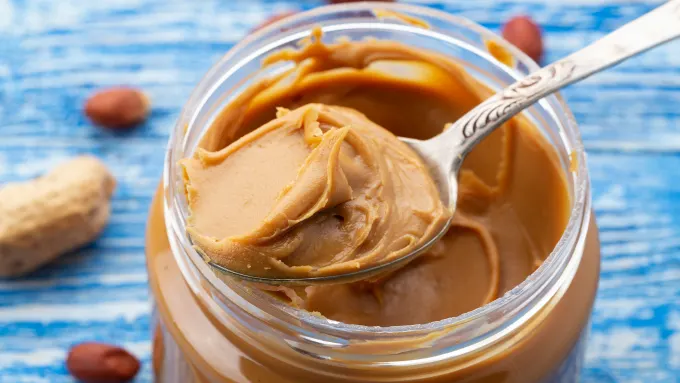
Reassuring new evidence suggests that feeding children smooth peanut butter during infancy and early childhood can help reduce their risk of developing a peanut allergy even years later.
Compared with avoiding peanuts, starting peanut consumption in infancy – as early as around 4 months of age, as a soft pureed paste, for instance – and continuing regularly to around 5 years old was associated with a 71% reduced rate of peanut allergy among adolescents in the United Kingdom, according to a study published Tuesday in the journal NEJM Evidence.
“I was not entirely surprised because infants in Israel are exposed to peanuts very early and allergy does not appear to emerge in adolescence or adults. This suggests the protection is long-term,” Gideon Lack, professor of pediatric allergy at King’s College London and an author of the study, said in an email.
“Peanut allergy develops very early in most children between six and 12 months of life. If you want to prevent a disease this needs to be done before the disease develops,” Lack said of exposing children to peanuts. “This biological phenomenon is based on an immunological principle known as oral tolerance induction. We have known for many decades that young mice or other experimental animals who are fed foods such as egg or milk or peanut cannot develop these allergies later.”
Food allergies have become a growing public health concern in the United States, and peanut allergy is estimated to affect about 2% of children in the United States, or nearly 1.5 million people younger than 18. Peanuts are among the food types that can cause the most serious allergic reactions, including the risk of the life-threatening reaction anaphylaxis.
“Today’s findings should reinforce parents’ and caregivers’ confidence that feeding their young children peanut products beginning in infancy according to established guidelines can provide lasting protection from peanut allergy,” Dr. Jeanne Marrazzo, director of the US National Institute of Allergy and Infectious Diseases, said in a news release Tuesday. “If widely implemented, this safe, simple strategy could prevent tens of thousands of cases of peanut allergy among the 3.6 million children born in the United States each year.”
I – Word Understanding
Anaphylaxis – an acute, life-threatening
hypersensitivity disorder, defined as a generalized, rapidly evolving, multi-systemic allergic reaction.


